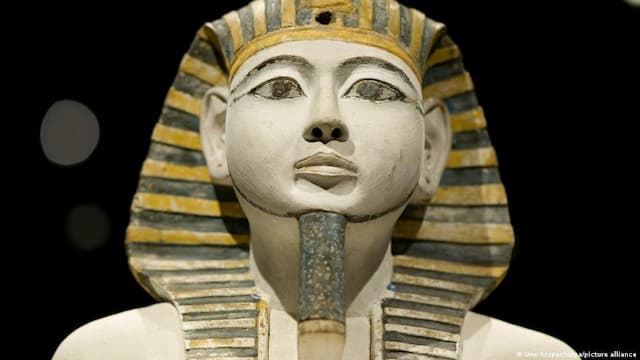How Jesus lived by faith (Habakkuk 2:4)

Jesus’ whole life is testimony to Habakkuk’s message, “The righteous one will live by faith(fulness).”
Jesus never mentioned Habakkuk 2:4, but his life embodied its message: the righteous one will live by faith(fulness). Faced with enemies who wanted to destroy the king of the Jews, Jesus did the right thing because he was trusting his Father to set everything right, to re-establish God’s kingdom.
Habakkuk lived when the kingdom died. Previously, Jesus’ namesake (Joshua) killed to take the land, and his ancestors (David’s sons) killed to keep it. But it all fell apart when Babylon invaded, captured the king, and took the land.
As we saw, Habakkuk explained the invasion as God’s judgement on Israel’s injustice (Hab 1). Despite Babylon’s evil motives, this was not the end of God’s project: See, the enemy is puffed up; his desires are not upright — but the righteous person will live by his faithfulness (Hab 2:4 NIV).
What Jesus taught
God’s people hoped to be restored as God’s kingdom, but they weren’t sure how that would happen. Like judges of old, some zealots wanted to kill their enemies. From the Dead Sea Scrolls we understand that some expected a teacher of righteousness to teach God’s people obedience and lead the sons of light to a great victory over the sons of darkness (1QM).
That’s not what Jesus believed. He taught Isaiah’s message that the exile was God’s way of placing his nation among the nations (Isaiah 49:6; 51:4; 60:3), like a light on a hill so the world could see the brilliance of the Father who reigns in the heavens (Matthew 5:16). Instead of perpetrating violence by fighting their enemies, Jesus insisted they should love their enemies. That’s how the nations would experience God’s good and perfect character (Matthew 5:38-48).
Isn’t that what Habakkuk promised when the kingdom fell? Those who do right (even in the face of this injustice) will live (not die out) because of their faith in (and faithfulness to) their heavenly sovereign.
Jesus taught the same truth in very similar circumstances. Habakkuk announced that Babylon’s armies were about to overturn Jerusalem. Jesus announced that Rome’s armies were about to overrun Jerusalem: When you see Jerusalem being surrounded by armies, you will know that its desolation is near. Then let those who are in Judea flee to the mountains … (Luke 21:20-21).
Flee; don’t fight! Wasn’t that God’s message through Habakkuk? Write the vision; make it plain on tablets so he may run who reads it (Habakkuk 2:2 ESV).
Can you imagine the army commanders’ reaction to Habakkuk? When Jeremiah told the people to flee from Jerusalem (Jeremiah 6:1), he was imprisoned for deserting to the Babylonians (Jeremiah 37:13). And some people thought Jesus sounded like Jeremiah (Matthew 16:14).
What Jesus practiced
Despite the danger to his own life, Jesus truly believed what Habakkuk taught: the righteous one will live by faith(fulness).
Jesus was very aware of what was wrong in God’s world. Although God had promised his authority to the human descendant (the son of man), Jesus knew he would suffer at the hands of rulers who do evil to keep their power. He refused to use violence to protect himself and the justice of his cause. He determined to do right and trust God with his life: The Son of Man must suffer many things and be rejected by the elders, the chief priests and the teachers of the law, and he must be killed and on the third day be raised to life. (Luke 9:22).
Jesus embodied Habakkuk’s truth. Please read this summary statement carefully and digest its defining significance:
The righteous one (who refused to do evil even in the face of violence) lived (even when unjust rulers used their power to execute him) because of faithfulness to (ie., faith in) the one who is sovereign over all.
Instead of relying on violence for justice, Jesus relied on the Father whose faithfulness sets the world right. That’s how Jesus practiced what Habakkuk preached.
Conclusion
Habakkuk did not predict the death and resurrection of the messiah. He simply delivered God’s message that — even though the people of God were about to suffer the most damning defeat the kingdom had ever known at the hands of an empire whose motives were evil — the people of God were to do right on the basis of their trust in God. And when they did that, relying on God and therefore responding by doing right, they would live and not die out.
Jesus embodied Habakkuk’s message. His Father proved faithful, overturning the injustice, setting things right by raising him to life. Looking back, we can see how Jesus was living this truth: the righteous one lived by faith(fulness).
Ultimately, that’s how the people of God live in him. We’ll need another post to unpack that reality.
What others are saying
Heath A. Thomas, Habakkuk, Two Horizons Old Testament Commentary (Grand Rapids, MI: Eerdmans, 2018), 116:
There is some indication that the Hab 2:4b LXX employs translation techniques that betray a messianic expectation. Thus, the one who has faith in God’s fidelity is none other than “The Righteous One,” the messiah. He does not shrink back (Hab 2:4a) but stays true to his (undisclosed) calling. Richard Hays argues that in the New Testament, Paul employed an apocalyptic understanding of the messianic Righteous One from Hab 2:4b to identify Jesus. So, what is envisioned in the reception of Hab 2:4b in Rom 1:17 and Gal 3:11 (and Heb 10:38) is a prophecy concerning the Righteous One, Jesus Christ who was coming. Hays leans on the messianic expectations of Second Temple Judaism to show that Jesus is the only true righteous messiah in whom the New Testament calls people to believe. Hays’s suggestion, however, is not entirely persuasive.
Kenneth L. Barker, Micah, Nahum, Habakkuk, Zephaniah, New American Commentary (Nashville: Broadman & Holman, 1999), 324–326:
In the day of turmoil and destruction, the righteous person shall live by his faithfulness to God. … The answer dealt with Habakkuk’s frustrations and fears. … Would the righteous be consumed with the wicked? …
The righteous are those courageous enough to accept God’s word of promise in a world dominated by the horrors of Babylonian power described in the preceding verses. To look for salvation in a world dominated by persecution requires faithfulness. World history may not indicate it, but God is leading his world to accomplish his purposes. The righteous are also those whose lives correspond to God’s leadership. The righteous are not perfect, but they do live according to their relationship with God. To be righteous means to meet the demands of a relationship. …
The message to Habakkuk referred to the righteous person living by faithfulness — an important Old Testament term describing loyalty as well as truth and trust.
Related posts
- Should the faithful fight evil? (Hab 2:4)
- Advancing forcefully or suffering violence? (Mt 11:12)
- Mountains and mustard seeds (Mt 17:14-21)
- Justice and the kingdom of God
- Kingdom work: the last 150 years
Seeking to understand Jesus in the terms he chose to describe himself: son of man (his identity), and kingdom of God (his mission). Riverview Church, Perth, Western Australia
View all posts by Allen Browne











